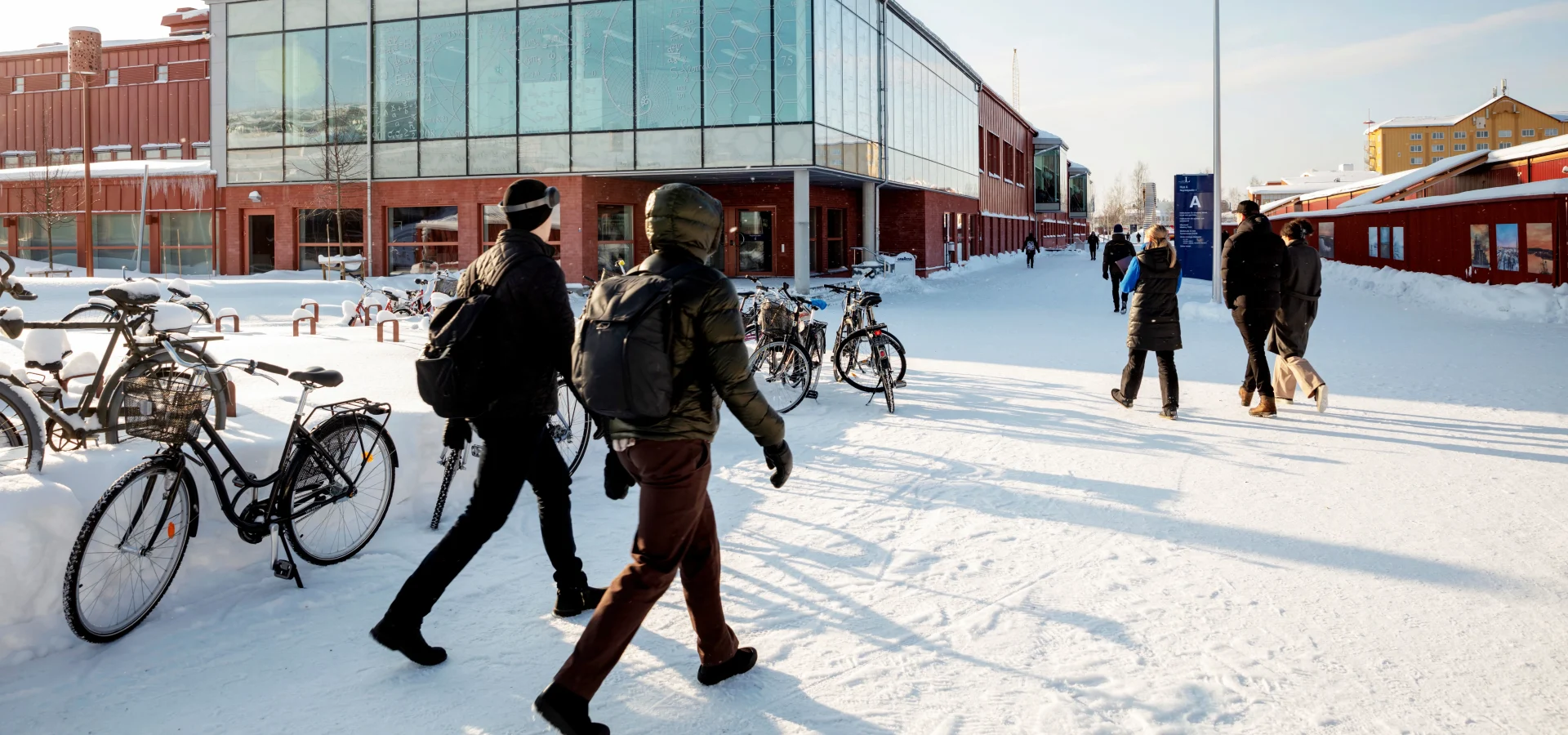
Ansettelsestype Part-time
Jobbposisjon University and college lecturer
Arbeidsmodell On location
Søknadsfrist May 11th, 2025
Postdoctoral fellow in Solid Mechanics
Luleå, Sverige
Ansettelsestype Part-time
Jobbposisjon University and college lecturer
Arbeidsmodell On location
Søknadsfrist May 11th, 2025
Er du den rette?
Luleå University of Technology is growing rapidly with world-leading expertise in several research areas. We shape the future through innovative education and groundbreaking research results, and based on the Arctic region, we create global social benefits. Our scientific and artistic research and education are conducted in close collaboration with international, national and regional companies, public actors and leading universities. Luleå University of Technology has a total turnover of almost SEK 2.1 billion per year. We are currently 1,900 employees and have 18,700 students.
In the coming years, billions of kronor will be invested in Norrbotten and Västerbotten in major projects aimed at a more sustainable society nationally as well as globally. Luleå University of Technology is involved in several of these highly topical research projects and the social transformation that follows. We have a wide range of programs to match the skills that are in demand. We hope you will help us build the sustainable businesses and societies of the future.
The Division of Solid Mechanics is looking for a postdoctoral researcher who is interested in working in a stimulating and growing research environment with modern technology. You should be able to work in groups as well as independently and have extensive experience in experimental activities. Research in the department includes the development of analytical, experimental and numerical methods. Important research areas are modeling and simulation for the prediction of manufacturing processes and product performance, with particular focus on the development of material models for both solid and granular materials behavior and their interaction. The department's own laboratory is a very exciting environment dedicated to mechanical testing at low and high temperatures and slow as well as very fast deformations. The laboratory is equipped with modern high-speed cameras and strain measurement systems. Recently, a test rig has been acquired to extend the strength of materials research in the field of fatigue.
Subject description
Solid mechanics encompasses the development of analytical, experimental and numerical methods in engineering mechanics. Important research areas are modeling and simulation for the prediction of manufacturing processes and product performance, with particular focus on the development of models for both solid and granular materials behavior and their interaction.
Project description
In an EU-funded project, third generation advanced high strength steels (3rd-gen AHSS) developed for application in the automotive industry for chassis details are studied. The project identifies the main damage and deformation mechanisms of the steels to understand their complex microstructures and critical properties such as formability, fracture toughness and energy absorption (crashworthiness).
Work tasks
An energy-based fracture criterion to predict the energy absorbed during crack formation and subsequent crack growth will be developed. The fracture toughness of the steel will be directly implemented in FE models to predict the fracture energy. Since high strain rates are involved in crash situations, all material testing will be performed at the Strength of Materials laboratory using special equipment for measurements under dynamic conditions. As a postdoctoral researcher, you will perform testing yourself together with the department's technicians. The project will also include extensive validating calculations in the form of finite element simulations.
Qualifications
To be eligible for employment, a PhD or equivalent foreign degree in solid mechanics is required. It is an advantage if the degree was obtained no more than three years before the closing date for applications for this position. If there are special reasons, those who have obtained a doctoral degree earlier may be considered, for example in the case of various types of statutory leave. Experience in fracture mechanics and mechanical testing involving high strain rates is an advantage. Furthermore, knowledge of numerical methods such as nonlinear finite element analysis is valued. Good written and oral communication skills in English are required. Good knowledge of Swedish is merited as teaching will be included in the service. You should be both a good team player and have the ability to work independently. Communication skills, initiative and an open mind are important as well as theoretical and practical knowledge.
Information to be provided
This position is a full-time position for two years. The place of employment is Luleå with planned access in May/June 2025.
For further information, please contact Head of Department Jörgen Kajberg, 0920-493474, jorgen.kajberg@ltu.se
Trade union representative:
SACO-S Diana Chroneer, 0920-49 2037, diana.chroneer@ltu.se
OFR-S Marika Vesterberg, 0920-49 1721, marika.vesterberg@ltu.se
How to apply
We prefer that you apply for the position via the application button below where you attach a cover letter, CV/resume and copies of verified diplomas. Please mark your application with the reference number below. Both the application and the diplomas must be written in Swedish or English.
Deadline for applications: May 11, 2025
Reference number: 1513-2025
